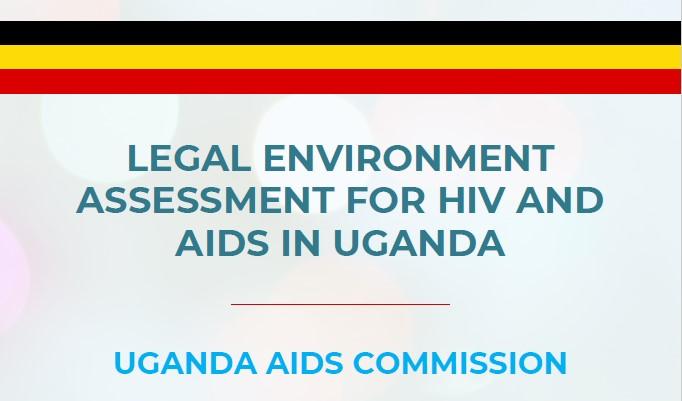
NEW: Report on Legal Environment Assessment (LEA) for HIV/AIDS in Uganda
We are pleased to present the report of a Legal Environment Assessment (LEA) for HIV AIDS in Uganda conducted by the USAID/Uganda Civil Society Strengthening Activity (CSSA).
Uganda is widely credited for its success in reducing the adult HIV prevalence from 18% in 1992 to 6.2% in 2016 and 5.5 % in 2020. HIV still continues to pose a significant health and developmental threat to the country, with high rates of prevalence among particular groups such as adolescent girls and young women, key and priority populations and less than optimal enrolment of people living with HIV (PHLIV) into care and treatment.
While the Government of Uganda is committed to the goal of ending AIDS as a public health threat by 2030, there is also increasing recognition that this goal cannot be achieved unless the country addresses structural barriers such as legal impediments, and issues such as human rights, stigma, discrimination, gender inequality and gender based violence.
The purpose of the Legal Environment Assessment (LEA) was to assess the extent to which the laws, policies and regulations enable or constrain access to HIV services among people living with, and people affected by HIV and AIDS. The report assesses the availability, accessibility, and affordability of interventions that promote rights of PLHIV, and other people affected by, or at risk of, HIV in Uganda and how these are affected by the legal and policy frameworks. The LEA also sought to assess the key human rights issues affecting PLHIV, key and vulnerable populations (KVPs) and the extent to which these issues are addressed by the current legal and policy framework.
The report goes ahead to provide recommendations for the creation of an enabling legal, social, and policy framework to eliminate HIV-related stigma, discrimination, and violence against people living with, affected by, or at risk of, HIV in Uganda.
The Legal Environment Assessment for HIV and AIDS in Uganda was conducted with funding from USAID/PEPFAR through the USAID/Uganda Civil Society Strengthening Activity in collaboration with the Uganda AIDS Commission. The data was collected between June 2021 and February 2022.



